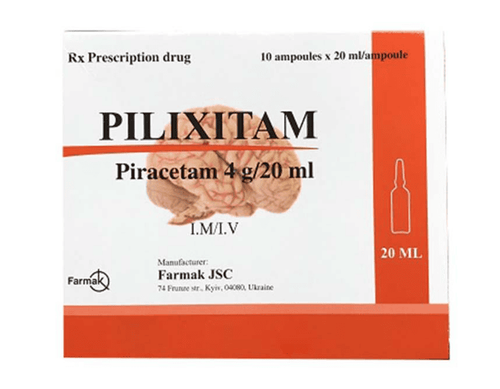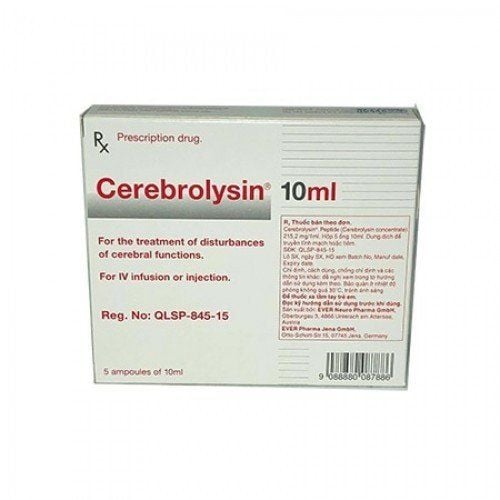This is an automatically translated article.
Phosphatidylserine is a phospholipid composed of both amino acids and fatty acids. Phosphatidylserine and the omega-3 fatty acids EPA and DHA work synergistically. They play a role in providing the building blocks for healthy cell membranes, assisting in the treatment of Alzheimer's disease, age-related cognitive decline, depression, ADHD, and improving athletic performance.
1. What is Phosphatidylserine?
Phosphatidylserine is defined as a phospholipid nutrient found in fish, green leafy vegetables, soybeans and rice. It is essential for the normal functioning of neuronal membranes and for the activation of Protein kinase C (PKC) which is involved in memory function. Phosphatidylserine has been shown to slow cognitive decline in animal models. In some experiments it has been demonstrated that the role of Phosphatidylserine is to increase memory performance in the elderly. So this is a substance sold as a dietary supplement to people who believe they can benefit from increased intake.
2. Pharmacodynamics, mechanism of action of Phosphatidylserine
Phosphatidylserine is indicated in the treatment of pathologies related to cognitive decline, including:
Alzheimer's disease; Age-related memory decline; Some dementias do not include Alzheimer's. Phosphatidylserine may be prescribed to boost immunity or to reduce exercise stress.
Phosphatidylserine was isolated for the first time from a component of a brain lipid called cephalin. Phosphatidylserine is involved in the same signal transduction activity as a basic structural component of biofilms.

Phosphatidylserine được dùng ở bệnh nhân mắc chứng suy giảm nhận thức
3. What does Phosphatidylserine do?
Phosphatidylserine is a chemical that plays an important role with common functions in the human body. This is a part of cell structure and is an active substance that is effective in maintaining cell function, especially in the brain.
Phosphatidylserine is used in the treatment of the following diseases:
Cognitive and intellectual decline in the elderly such as Alzheimer's; Improve signs of attention deficit hyperactivity disorder; Age-related decline in mental function; Improving thinking ability for the group of teenagers; Depression and mood improvement in these patients; Rehabilitation and brain function after trauma, stroke, cerebrovascular accident; Speed up recovery, prevent bone and muscle diseases; Improve performance in sports competition. Phosphatidylserine can be used for many other uses.
4. Dosage of Phosphatidylserine
Dosage of phosphatidylserine may vary from person to person. The dosage is based on your age, medical condition, and several other concerns. Phosphatidylserine may not be safe, so work with your doctor to find the right dose for you.

Phosphatidylserine cần được sử dụng đúng liều lượng
5. Phosphatidylserine interactions
Phosphatidylserine may interact with medications you are taking or your current health condition. You should consult your doctor before using phosphatidylserine as well as any other medication. Medications that may interact with the components of phosphatidylserine include:
Anticholinergics: Phosphatidylserine may increase the effects of chemicals and reduce the effects of anticholinergics. Some common anticholinergics include atropine, scopolamine, some medications used to treat allergies (antihistamines), and antidepressants. Medicines for Alzheimer's disease: Phosphatidylserine might increase the activity of the chemical acetylcholine in the body. Drugs used to treat Alzheimer's disease are acetylcholinesterase inhibitors and also work to increase the chemical acetylcholine. Taking phosphatidylserine in combination with medications for Alzheimer's disease may increase the unwanted effects of these medications for Alzheimer's disease. Certain Acetylcholinesterase drugs: Phosphatidylserine may increase the ability of the chemical acetylcholine to work in the body. The chemical is similar to some drugs used to treat conditions such as glaucoma, Alzheimer's disease and others. Taking phosphatidylserine in combination with these medicines may increase the risk of unwanted effects in the body.
6. Note when using Phosphatidylserine drug
You need to consult a doctor, pharmacist when using Phosphatidylserine if:
You are pregnant or breastfeeding, you should only take Phosphatidylserine as recommended by your treating doctor; you are taking any other medicines including prescription and over-the-counter medicines, herbs, supplements; You are allergic to any substance of Phosphatidylserine or other drugs and herbs; You have any other underlying illnesses, disorders or medical conditions; Have you ever had a food allergy? dye; preservatives or with animal foods. To ensure safety and effectiveness, you should talk to your doctor to weigh the benefits of using Phosphatidylserine against the possible risks before taking it.













